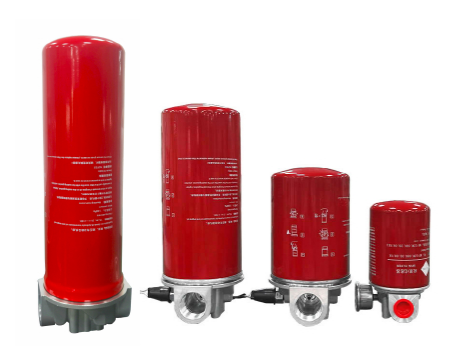Yes, the correct selection of hydraulic filters is crucial and should be made during the design process of hydraulic systems. Here are some key considerations for selecting the appropriate hydraulic filters:
-
System Requirements: Understand the specific requirements of the hydraulic system, including pressure ratings, flow rates, and contamination levels. This information will guide you in choosing filters that can handle the system's operational demands.
-
Contamination Control of hydraulic filters: Determine the level of contamination control needed. Different applications may require different levels of filtration efficiency. For example, systems with high precision components may need finer filtration to prevent damage from small particles.
-
Filter Media Type: Select the appropriate filter media type based on the nature of the contaminants. Common types include paper, metal mesh, woven wire, and pleated cartridges. Each has its advantages and is suitable for different contaminant sizes and types.
-
Flow Rate Capacity: Ensure that the filter can handle the maximum flow rate of the system without significant pressure drop. The filter should not restrict the flow to the extent that it affects system performance.
-
Replacement and Maintenance: Consider the ease of maintenance and replacement of the filters. Some systems may benefit from using replaceable cartridge filters rather than disposable ones, depending on accessibility and downtime considerations.
-
Compatibility of hydraulic filters: Make sure the filter is compatible with the hydraulic fluid being used. Some filters may degrade or become less effective when exposed to certain types of fluids or additives.
-
Pressure Drop: Evaluate the pressure drop characteristics of the filter. A filter that causes excessive pressure drop can reduce system efficiency and increase energy consumption.
-
Durability and Reliability of Hydraulic Filters: Choose filters that are durable and reliable under the expected operating conditions. High-quality filters can provide longer service intervals and better protection for the hydraulic components.
-
Cost Considerations: While cost is always a factor, it's important to balance initial cost against long-term benefits such as reduced maintenance, extended component life, and improved system reliability.
-
Standards and Certifications of Hydraulic Filters: Look for filters that meet relevant industry standards and certifications. This ensures that they have been tested and proven to perform effectively under specified conditions.
By carefully considering these factors during the design phase, you can select hydraulic filters that optimize system performance, extend component life, and minimize downtime due to contamination-related failures.
Quote Inquiry Contact us!

